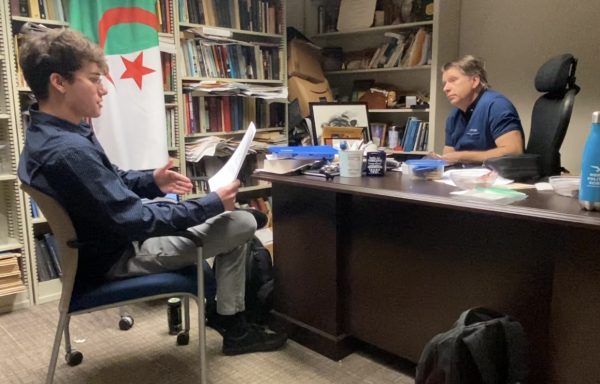Chicago sets a green example
July 18, 2013
As I write this week’s column, I sit in a coffee shop in Chicago. The atmosphere of this typical neighborhood coffee shop deviates from that of a mass-produced Starbucks or even most other coffee places I’ve visited. Looking around, I notice that nearly everyone drinks their coffees out of a ceramic, washable mug. Even the disposable cups let you know that they are compostable and produced without the use of oil. Specialty drinks utilize locally produced honey, chocolate and juice. The differences noted are probably not as noticeable Chicagoans as they are to me. Coffee shops and restaurants alike offer more sustainable, healthy options than I’ve seen anywhere else. Grabbing an organically grown salad is just a convenient as grabbing a Chicago-style hotdog. Doing business in a sustainable manner is not just illustrated by the food and drink businesses, however.
Walking downtown through the heart of the city doesn’t quite feel like a venture through a concrete jungle. The sidewalks are lined with planters, filled with vibrant flowers, plants and small trees. Parks are greatly integrated into the layout of the city. You don’t have to go far to find expansive grassy areas. This differs from many other cities, where parks and the metropolis are greatly segregated. Unlike most towns and the city of Atlanta, the public transportation system is extensive and utilized by the vast majority of the city. It cuts down on traffic, fossil fuel usage and space designated for parking.
Being in a place so otherworldly from the southeast illuminates the sustainable progress our nation has already made in some regions and cities, as well as the hard work required of the rest of the nation to catch up. Signs of changing times can certainly be seen, even in the small town of Statesboro. Local restaurants offer locally produced menu items, we have a great farmer’s market and Georgia Southerners can proudly say they attend one of the most sustainable universities in the nation. However, I believe one of the biggest signs a place has effectively and fully integrated sustainable practices is when it is no longer a novelty, but an expectation. To move forward as a nation, the practice of sustainability must become assimilated and inseparable with economy and community, thereby enhancing and enriching the lives of current citizens and their future generations.


















